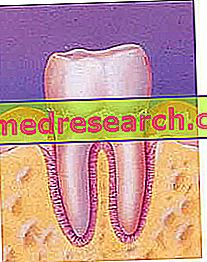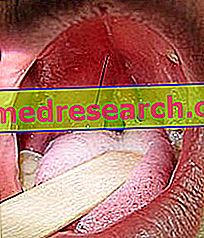
What is Episalvan - Birch Bark Extract and what is it used for?
Episalvan is a drug used for the treatment of partial thickness wounds in adults. These are wounds in which the upper skin layers are lost, for example in the event of burns or during a skin transplant.
Episalvan contains dry birch bark extract.
How is Episalvan - Birch Bark Extract used?
Episalvan is available as a gel to be applied in a thin layer (1 mm thick) on the wound, which must then be covered with a dressing. The gel should be applied again at each dressing change, until the wound is healed, for a maximum of 4 weeks.
The medicine can only be obtained with a prescription.
How does Episalvan - Birch Bark Extract work?
Episalvan's exact mechanism of action is still not entirely clear. It is believed that the active ingredient contained in Episalvan, the birch bark extract, promotes the growth of the cells that make up the external cutaneous layer (keratinocytes) and causes these to move rapidly towards the empty space created by the wound, contributing to this way to the faster healing of wounds.
What benefits of Episalvan - Birch Bark Extract have been shown in studies?
Episalvan was studied in two main studies involving 217 patients with partial thickness wounds who had undergone a skin transplant. Patients received Episalvan associated with a dressing on half of the wound, and the only standard dressing on the remaining area. In the first study, the average time between surgery and wound healing was 17.1 days for wounds treated with the standard dressing alone and 15.5 days for wounds also treated with Episalvan. In the second study the corresponding intervals were 16.0 and 15.1 days respectively.
A third study involved 57 patients with partial thickness burn wounds treated with Episalvan on half of the wound and with standard disinfectant gel on the other half. Both areas were covered with a dressing. The mean time of wound closure was 8.8 days for wounds treated with disinfectant gel and 7.6 days for wounds treated with Episalvan.
What are the risks associated with Episalvan - Birch Bark Extract?
The most common side effects of Episalvan are wound complications, skin pain (both may affect more than 3 in 100 people) and itching (which may affect more than 1 in 100 people).
For the full list of restrictions and side effects reported with Episalvan, see the package leaflet.
Why has Episalvan - Birch Bark Extract been approved?
Episalvan gel has been shown to reduce wound healing times. Although these are minimal differences, these have been considered relevant for patients with partial thickness wounds, which can be difficult to heal and for which limited therapeutic options are available. With respect to safety, no major issues have been identified and undesirable effects are manageable. The Agency's Committee for Medicinal Products for Human Use (CHMP) therefore decided that Episalvan's benefits are greater than its risks and recommended that it be approved for use in the EU.
What measures are being taken to ensure the safe and effective use of Episalvan - Birch Bark Extract?
A risk management plan has been developed to ensure that Episalvan is used as safely as possible. Based on this plan, safety information has been included in the summary of product characteristics and the package leaflet for Episalvan, including the appropriate precautions to be followed by healthcare professionals and patients.
Further information is available in the summary of the risk management plan.
More information about Episalvan - Birch Bark Extract
For more information about treatment with Episalvan, read the package leaflet (also part of the EPAR) or contact your doctor or pharmacist.



